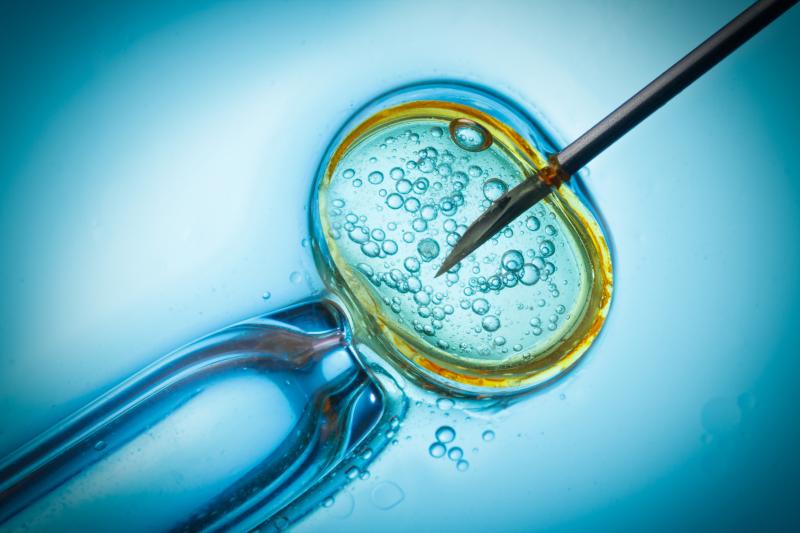
Fertility history, particularly a previous tubal ectopic pregnancy (TEP), does not appear to have any effect on the probability of a live birth following in vitro fertilization (IVF)/intracytoplasmic sperm injection (ICSI) in women with tubal factor infertility, a study has shown.
The analysis included 2,892 women with tubal infertility undergoing the first fresh IVF/ICSI cycle, grouped into three according to the type of previous naturally conceived pregnancy: TEP (n=511, 17.7 percent), intrauterine pregnancy (IUP; n=1,044, 36.1 percent), and no pregnancy (n=1,337, 46.2 percent).
Couples with a previous TEP vs IUP were younger and had a slightly shorter duration of infertility. There were no significant differences in body mass index, prevalence of female passive smoking or hydrosalpinges seen among the three groups.
The optimal live birth rate across the entire cohort decreased in older age groups. Live birth rates stratified by maternal age (<30, 30–35, ≥35 years) were similar in the TEP (59.9 percent, 53.7 percent, 45.5 percent), the IUP (62.0 percent, 53.8 percent, 40.6 percent) and no pregnancy groups (56.7 percent, 54.4 percent, 45.6 percent). The similarities remained despite adjustments for confounders such as age and years of infertility.
Furthermore, previously undergoing salpingectomy, salpingostomy or medical treatment for TEP did not significantly affect subsequent fertility outcomes. That said, the rates of preterm and low birth weight in women with a previous TEP were comparable to those with a previous IUP.
The present data may be used to counsel women with tubal factor infertility who had an ectopic pregnancy—that a history of TEP does not increase the future risk of recurrent TEP via IVF or other adverse perinatal complications, the researchers said.